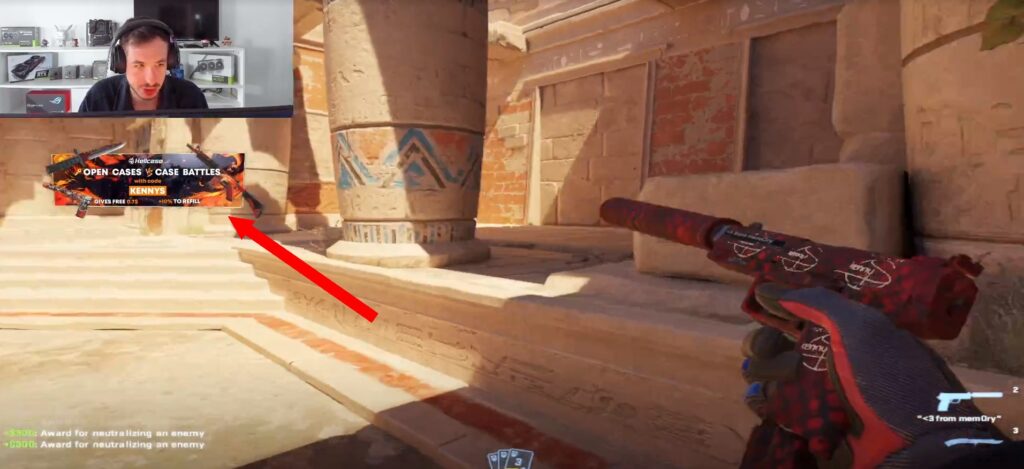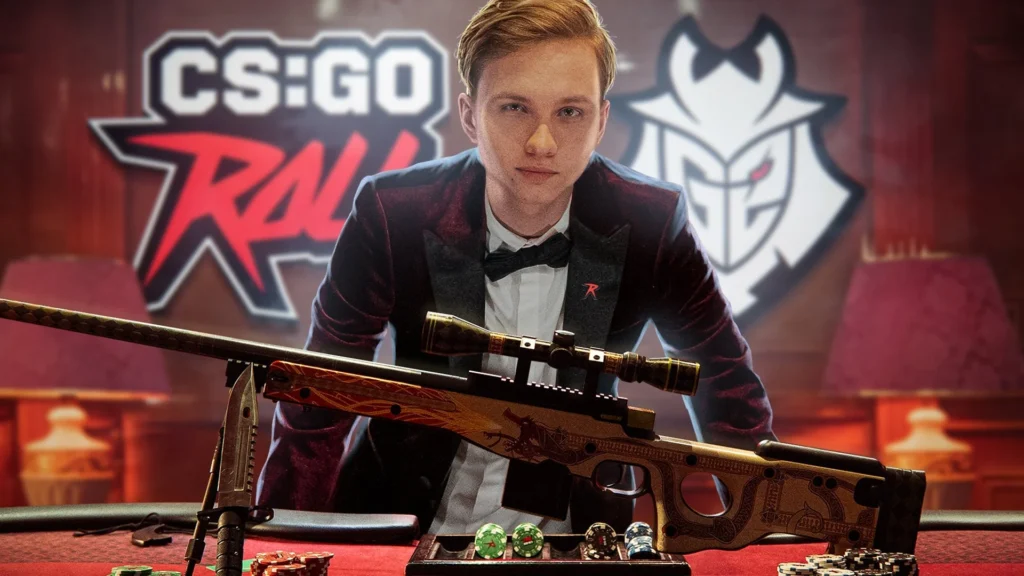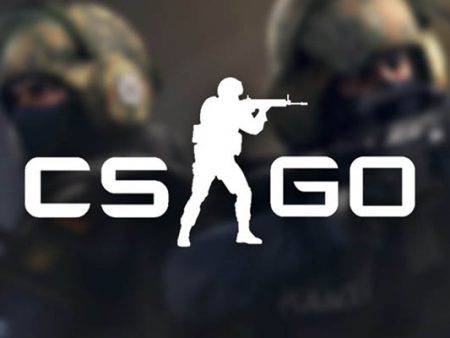Streaming platform Twitch has taken the bold step of banning the promotion and sponsorship of CS:GO skins betting/gambling sites. This decision could have an impact on many CS:GO streamers who have lucrative deals with these controversial sites. The change is reflected on the Community Guidelines of the company.
A lucrative industry under fire
In the world of Counter-Strike: Global Offensive (CS:GO), trading and betting on in-game skins and cosmetics has become a thriving industry. Rare skins have been known to sell for hundreds, even thousands of dollars online.
Many players spend money on these betting and gaming sites. casino csgotransforming the game's commercial system into something resembling a virtual slot machine, rewarding players with valuable items.
The Dangers of Betting on Skins
These sites often pay or sponsor popular Twitch streamers to promote their services.
However, the unregulated nature of this industry has led to concerns about its potentially harmful effects, particularly on miners such as as youtubeur Hougnougnane explains.
As a result, regulators and legislators began targeting these sites, which eventually led to Twitch's recent ban on promoting and sponsoring skins betting.
Why has Twitch decided to ban betting on CS:GO Skins?
The streaming platform's policy change appears to be in response to growing concerns and controversy surrounding betting on skins in the CS:GO community.
Critics argue that these sites encourage addictive behavior and expose young audiences to the risks of gambling without proper supervision or regulation. In addition, high-profile incidents such as the PhantomLord have drawn even more negative attention to the industry.
Controversial incidents spark debate
In 2016, two well-known YouTubers, Trevor "TmarTn" Martin and Tom "ProSyndicate" Cassell, were criticized and faced legal problems for promoting a betting site on CS:GO skins without disclosing that they owned them. Similarly, in 2018, popular Twitch streamer Jaryd "summit1g" Lazar received criticism for openly betting with skins on his channel.
These incidents have raised questions about the ethics of streaming platforms like Twitch, which allow their content creators to engage in such activities without proper disclosure or oversight. As a result, Twitch seems to have decided to take action against this problem. completely banning the promotion and sponsorship of CSGO gambling.
Impact on CS:GO streamers
This new policy could have major consequences for many of our customers. CS:GO streamers who have lucrative agreements and partnerships with these controversial betting sites.
It remains to be seen how these streamers will adapt to the change, and whether they will be able to find alternative sources of revenue to support their channels.

Possible repercussions for the esport industry
- Loss of income : For some streamers, sponsorships from skins betting sites account for a significant proportion of their earnings. These streamers could face financial difficulties as a result of the ban.
- Content changes : With the removal of betting on skins, some streamers may have to rethink their content strategies. They may choose to focus more on gameplay, community engagement or other forms of entertainment to attract viewers and maintain revenues.
- Increased voting : The ban could prompt further investigation into the industry, leading to possible regulatory changes or crackdowns on CS gambling sites.
- Change in esports: Counter Strike esport is widely supported by gambling sites, such as G2 Esport's sponsor, none other than CSGORoll. Teams and tournament organizers will have to find alternatives to fill the coffers.

Twitch's decision to ban the promotion and sponsorship of CS:GO skin gambling sites marks a notable change in the streaming platform's approach to controversial content.
With growing attention on this issue, it will be interesting to see how other platforms like Youtube react in the months to come.
Ultimately, the ban may serve as a wake-up call for the unregulated skins betting industry, and pave the way for greater oversight and protection for gamblers, particularly minors who are at risk of developing gambling problems.









